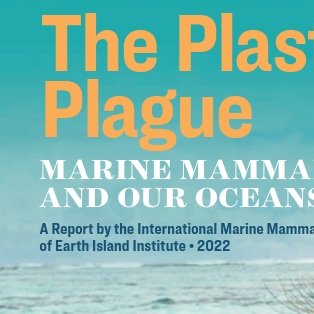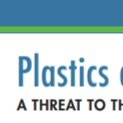
Comparative assessment of microplastic ingestion among deep sea decapods: Distribution analysis in Sardinian and Catalan waters
This study presents, for the first time, a comprehensive evaluation of microplastic ingestion levels in four ecologically and commercially significant crustaceans, spanning two distinct regions in the Mediterranean Sea. By addressing this critical knowledge gap, a consistent methodology was used, enhancing data comparability and providing novel insights into regional and species-specific patterns of microplastic exposure.

The Cost of Amazon’s Plastic Denial on the World’s Oceans
For the third year, Oceana analyzed e-commerce packaging data and found that Amazon generated 709 million pounds of plastic packaging waste in 2021. This is a 18% increase of Oceana’s 2020 estimate of 599 million pounds and is enough plastic to circle the Earth more than 800 times in the form of air pillows. Oceana found, based on data from a peer-reviewed study on plastic waste pollution published in Science in 2020, that up to 26 million pounds of this plastic waste will end up in the world’s waterways and seas.

An Introduction to Plastics and Toxic Chemicals
The health and environmental impacts of plastics are a global crisis. Scientific evidence shows that we have broken through the “planetary boundaries” for chemical and plastics pollution, meaning that production and emissions may be threatening the stability of the entire global ecosystem. To best understand what plastics pollution is, one must understand what plastic is: a material made from carbon (fossil fuels) and chemicals. Plastics do not exist without chemicals, and harmful chemicals are released at every phase of the plastics life cycle – from oil extraction to plastics production, transport, use, and disposal.

Field Measurements Reveal Exposure Risk to Microplastic Ingestion by Filter-Feeding Megafauna
Per day, a krill-obligate blue whale may ingest 10 million pieces of microplastic, while a fish-feeding humpback whale likely ingests 200,000 pieces of microplastic. For species struggling to recover from historical whaling alongside other anthropogenic pressures, our findings suggest that the cumulative impacts of multiple stressors require further attention.

The Plastics Plague: Marine Mammals and Our Oceans in Peril
A new report, “The Plastics Plague: Marine Mammals and Our Oceans in Peril,” explores the deadly interactions between marine mammals and plastic, from drowning in plastic nets to ingestion and nervous system damage from plastic toxins.

Reckoning With the U.S. Role In Global Ocean Plastic
Reckoning with the U.S. Role in Global Ocean Plastic Waste calls for a national strategy by the end of 2022 to reduce the nation's contribution to global ocean plastic waste at every step - from production to its entry into the environment - including by substantially reducing U.S. solid waste generation.

Plastics and Microplastics: A Threat to the Environment and Health
EHHI reviewed nearly 500 scientific studies for this report and found that each of us ingests and inhales millions of microscopic plastic particles each year. Microplastics carry chemical additives and coatings as well as potentially pathogenic microbes. Disturbingly, their impact on human health is not yet known.

